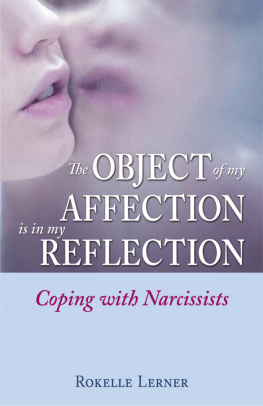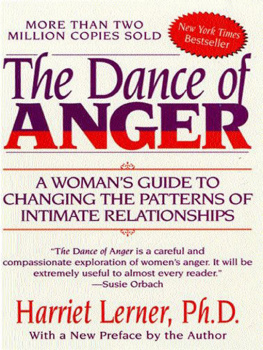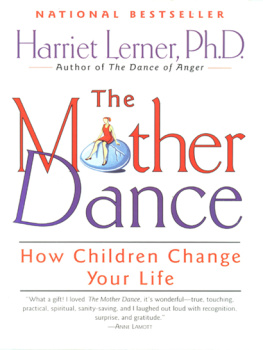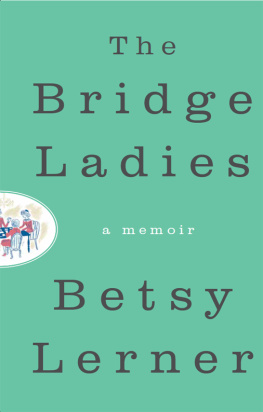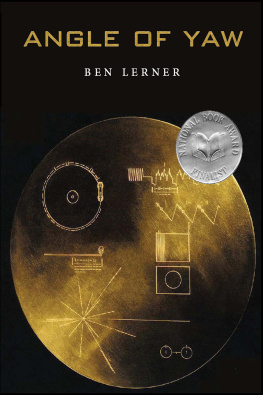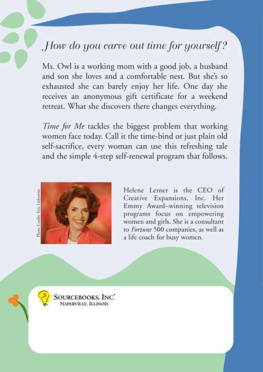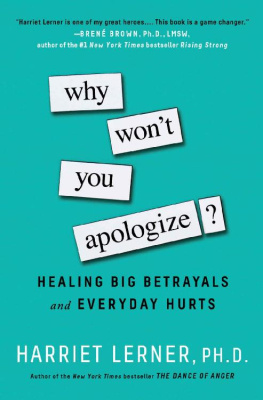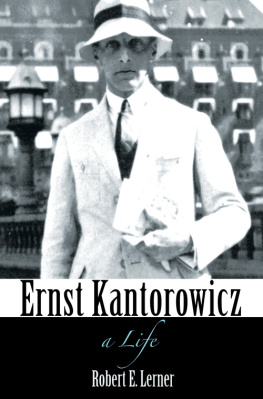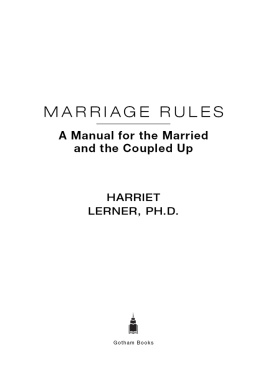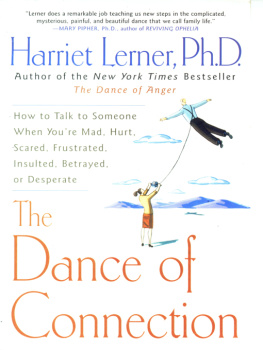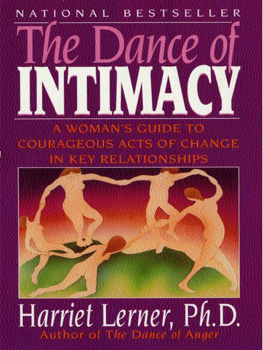Life Preservers
Staying Afloat in Love and Life
Harriet Lerner, Ph.D.

To my mother, Rose Goldhor,
life preserver, anchor, and friend
T here are never just two different ways to understand or tackle any particular human problem. There are seven different waysor maybe nineteen or one hundred. Sometimes imagination and un common sense are required to solve the riddles and relationships of life.
Im a person who asks for help. I dont always apply my best thinking to my own problems (compared to, say, someone elses problems). If Im anxious enough, or angry enough, I may not think at all. Thats when I grab some remarkably clear-thinking person by the collar and ask what she thinks or what he would do in my shoes. At a calmer time, I may be the remarkably clear-thinking person someone else needs.
Some folks are do-it-yourselfers, but emotional self-sufficiency doesnt appeal to me. I think were here to help each other out. If were drowning in our emotions, or just flailing about, we can grab the life preserver that is tossed our way. Then, when our feet are on solid ground, we can toss one out to someone else.
Consider a folktale I learned from family therapist Rachel Hare-Mustin.
An old man was bothered by some noisy boys playing outside his house. So he called the boys to him and told them he liked to hear them play, but he was getting deaf. If they would come over and play noisily every day, he would give each of them a quarter.
The next day they played noisily and the old man paid them. But the day after that, he gave each boy only fifteen cents, explaining that he was running out of money. The following day he said he regretted he would have to reduce the payment to five cents. The boys became angry and refused to come back because it was not worth the effort to play noisily for only five cents a day.
What a clever guy! When we feel most frustrated were least likely to be flexible and creativebut this story reminds me that even when we are convinced that weve tried everything, there is always something new to do after all.
I hope Life Preservers will help you see old problems from a new angle. Its a book to help you to stay afloat in troubled times, and buoy you up when life takes a difficult and unexpected turn. We all feel better when we have a clear direction, a solid plan, a larger and more balanced view.
Life Preservers covers the landscapes of work and creativity, anger and intimacy, friendship and marriage, children and parents, loss and betrayal, and sexuality and health. From the countless questions I have received from women over many years, Ive selected those most frequently asked, as well as those rarely voiced.
Most of the questions and answers have been published in my monthly New Woman magazine column, Harriet Lerners Good Advice and others have never before seen print. I have received the majority of questions through the mail and each has been condensed into a paragraph. Brevity is a challenge at both ends, especially mine. Its a tall order to respond concisely to a complex problem shared in good faith by someone I have never met. I identify with the author who told a friend, I would have written less, but I didnt have the time. It is, indeed, harder to say less.
So here are short answers to some of lifes big questions. The question-and-answer format of Life Preservers has given me an opportunity to address the broadest range of human dilemmasand for readers to hear my views on just about everything. I trust that women (men, too) will find themselves in these pages, take whats useful, run with it, and ignore the rest.
What we think is most shameful and unique about ourselves is often what is most universal. It helps to hear of other peoples struggles and to recognize that humans are more alike than different. I want to thank all the women and men who have responded to my work with overwhelming gratitudeand more questions. The generous and inquiring letters from my readers are a life preserver for me.
B y the time I started graduate school in the sixties, I had a vivid image of the man I was looking for. He was tall and thin, with dark, curly hair and intense brown eyes. He rode a racing bike to classes at Columbia University, where he majored in psychology or English literature, and he worked, in his spare time, for nuclear disarmament. He played guitar and flute, and wrote poetry, which he read aloud to me at night. Both in and out of bed he moved with perfect ease and grace. He was passionate and restrained, funny and serious, intellectual and unpretentious. He knew how to fix things that broke and how to tie good knots on packages. We would live together for two years in a loft in Greenwich Village after which time we would marry. Shortly thereafter he would publish his first book, which he would dedicate to me, his wife.
Though some may not have quite such a detailed picture of their ideal partner, we all know pretty much what were looking for. Just ask usor check the personal ads in the local paper. While individual taste varies, we want a partner who is mature and intelligent, loyal and trustworthy, loving and attentive, sensitive and open, kind and nurturant, competent and responsible. Ive yet to meet a woman who says, Well, to be honest, Im hoping to find an irresponsible, distant, ill-tempered sort of guy who sulks a lot and wont pick up after himself.
But the kind of person we say we want, and who were actually drawn to or settle for, are different matters entirely. Few of us evaluate a prospective partner with the same objectivity and clarity that we might use to select a household appliance or a car. Too many unconscious factors get in the way. One of the most powerful influences on our choice of a mate is our experience in our first familyincluding the quality of our parents relationships to each other, to us, and to their own family of origin. We are also deeply affected by gender rolesthe specific meanings attached to being male or female that have evolved over many generations in our particular family, class, and ethnic group.
Timing is an issue as well. Were prone to fall mindlessly in love at difficult emotional junctureson the heels of an important loss, for examplewhen were least likely to think clearly. Or we may compromise too much in a relationship or dissipate our energy trying to change him, having been taught that any man is better than no man at all. Moreover, its almost impossible to imagine what intimate relationships with menor womenwould look like in a different world of true gender equality.
Historically speaking, women have learned to sacrifice the I for the we just as men have been encouraged to do the opposite, to bolster the I at the expense of nurturing the growth of other family members. Many women still end up in relationships where their wants, beliefs, priorities, and ambitions are compromised under relationship pressures. Of course, all relationships require flexibility and give-and-take; we dont always get what we want. But a problem arises when we do more than our 50 percent of giving in and going along.
Believing that relationships with men are supposed to be the source of their greatest joy and fulfillment, many women struggle terribly when these relationships all too frequently become a source of pain and disappointment. Women still tell me that they love too much, or not enough, or in the wrong way, or with a poorly chosen partner. The majority of letters I receive are from women seeking intimacy in unhappy relationships with men.


